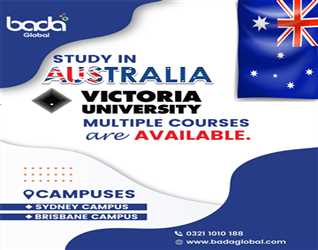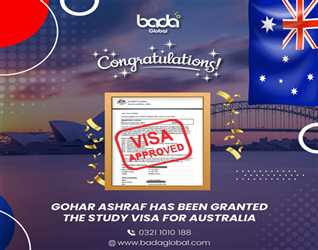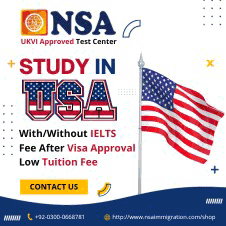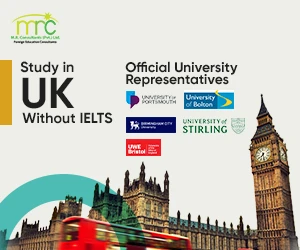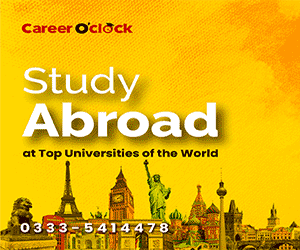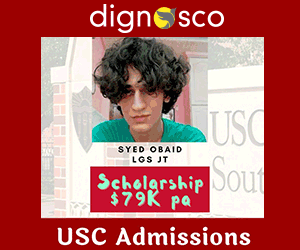
Choose Your Education
You have so many educational options to choose from if you intent to study in Australia, so take some time to think about your career and life goals. The course you study will shape your career and life plans. Also think about whether you want to study in the city or in the country. Do you want to study at a small or large college or university? What level qualification do you want? (certificate, diploma, degree etc). You will probably find that the course you want to study is offered at several places in Australia. Is it important that you live somewhere warm or cold?
You will also need to consider the institution’s academic entrance requirements, as each college or university and each course has its own standards. If you don’t have enough English, you will need to think about English Language too.
Tuition Fee
The cost of studying in Australia compares well with other countries that take international students. You will find that the combined costs of tuition fees and living expenses are lower in Australia than the US and UK. Each institution has different fees for different courses. You will find that tuition fees in Australia for international students are even more competitive with other countries, especially when you calculate current exchange rates.
The following is a guide only:
English Language Courses AUD$150 – AUD$350 per week
Vocational Education and Training Courses AUD$5000 – AUD$12000 per year
Bachelor Degree (undergraduate) AUD$10000 – 18000 per year
Graduate Diploma, Masters, PhD (postgraduate) AUD$12000 – 18000 per year
English Language
You can study intensive English language (known as ELICOS) at more than 100 institutions in Australia and at a relatively low cost. Some institutions are private, semi-private or government owned. All institutions are properly registered and offer high quality English language training, many using advanced language laboratories, video, computer and library facilities.
There are no entrance requirements for English Language courses. Courses are offered at all levels (beginner to advanced) and course starting times are very flexible. This flexibility makes it easy for you to combine English Language Training with a holiday, or with another course.
You can study:
• General English (emphasis on communication skills)
• Examination Preparation (preparation for Cambridge, TOEFL or IELTS examinations)
• Study Tourism (learn English while learning about Australia / New Zealand or enjoying activities such as scuba, golf, horse riding, sailing etc)
• And more
Many students will take an English Language Test to determine their level of English, and to decide how much English Language Training they may need. All tests assess your reading, writing, speaking and listening skills. TOEFL (Test of English as a Foreign Language) is a very popular test in Asia, however, most Australian institutions prefer the IELTS (International English Language Testing System) test.
High School 500-550 TOEFL or 5-6 IELTS
Certificate 500-550 TOEFL or 5-6 IELTS
Diploma 500-550 TOEFL or 5-6 IELTS
Bachelors Degree 550-600 TOEFL or 6.0-7.0 IELTS
Postgraduate 550-600 TOEFL or 6.0-7.0 IELTS
University (BA, BSc, Pg Dip, MA)
There are many universities in Australia ranging in size from 3000 students to more than 30,000 students. All Australian universities are strictly monitored to maintain high standards in teaching and research. Most of these universities are located in cities, while some are found in rural environments.
Universities offer courses in a wide range of areas at the following levels:
• Bachelors Degree
• Graduate Certificate
• Graduate Diploma
• Masters Degree
• Doctorate (PhD)
Each university has its own entrance requirements for each course offered. You will also need to have a minimum level of English before you can start a course. Most courses start in February, however, some may also start in July and October.
Private and Specialist Colleges
Private and Specialist colleges offer courses in almost every area of study, usually at certificate, diploma and advanced diploma level. These courses are often designed to teach practical skills you can use in the workforce. Courses can range from 10 weeks to 3 years, and each college will have its own entrance requirements. Many private and specialist colleges have credit transfer arrangements with universities so you can earn credit towards a bachelor degree.
Some examples of the types of courses you can study at a private college & University:
• Accounting
• Aviation
• Business management
• Child care
• Computer studies
• Graphic design
• Hair and beauty therapy
• Information Technology (IT)
• Marketing
• Office administration
• Secretarial Studies
• Travel and tourism
• Hospitality and hotel management
• And many more
High Schools
Australian schools offer quality education at world class standards. Each State or Territory in Australia is responsible for its own schools however the Australian Federal Government ensures the standards and quality of teaching are maintained throughout the country.
The majority of Australian schools are public and approximately one quarter are private and charge full fees. Many private schools are run by religious institutions. Some schools offer boarding facilities.
There are thousands of schools in Australia, far too many to list here. You need to consider your individual needs (large school or small school, is religious education important, which city or town would you like to live in, etc).
Length of Courses
The following is a guide only. Each course and each college or university may be slightly different:
Certificate 6-18 months
Diploma 1.5-3 years
Bachelors Degree 3-5 years
Graduate Certificate 6 months
Graduate Diploma 1 year
Masters Degree 1-2 years
PhD 4-5 years
Student Visa
High Brow will give you advice about how to apply for your visa. To be given your visa, you will need to show the following:
• Letter of Confirmation of Enrolment from the school, college or university
• Letter of Offer Receipt showing you have paid your tuition fees Valid passport
• Medical report showing your good health
• Proof of having paid Overseas Student Health Cover (OSHC) for Australia
You should be aware of the conditions of your visa:
• You must leave Australia when your visa has expired
• Your visa is not valid for permanent residency of Australia
• You must satisfy course requirements and continue your enrolment
• While studying you can work up to 40 hours per fortnight and full-time during vacation time
• Health insurance must be paid for the full stay in Australia
The Streamlined Visa Processing SVP is currently very popular in attracting international students to Australia.
Insurance
International students in Australia with a student visa must have arrangements for health insurance. Australia has a special system of health care cover for international students called Overseas Student Health Cover (OSHC) and you must have this for the duration of your student visa in Australia. If you come to Australia on a working holiday visa or tourist visa and study a short course (up to 3 months) you cannot take out OSHC. We recommend travel or private medical insurance for those students on other visas.
High Brow Education Concern:
57-Commercial Area, Cavalry Ground, Lahore - Cantt.
UAN # 0304 1111 553, +42 3660 0066, 3668 0911-2
Email: info@highbrowedu.com
Website: www.highbrowedu.com



.gif)


 1427
1427
 0
0

